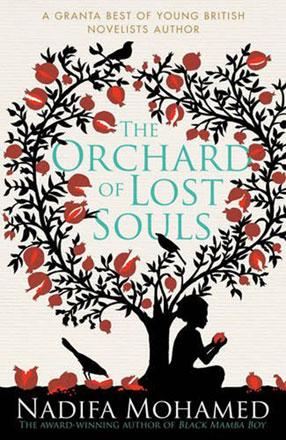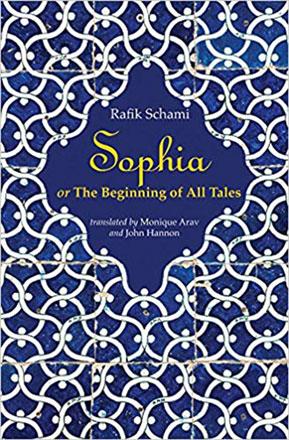You are here
The price of difference
By Sally Bland - Mar 01,2015 - Last updated at Mar 01,2015
Days of Ignorance
Laila Aljohani
Translated by Nancy Roberts
Doha: Bloomsbury Qatar Foundation Publishing, 2014
Pp. 165
This is a novel that celebrates love, caring, sincerity and intellect, but the opposing forces — intolerance, violence, hypocrisy and ignorance — loom large in the story. Obviously, Saudi author Laila Aljohani is not living in a bubble, but is keenly aware that one is not always rewarded for giving love or sticking to one’s principles. What happens to her beautifully crafted main characters when they fall in love, illustrates the point.
Both born in Saudi Arabia, Leen and Malek are a bit outside the mainstream. Leen is much more independent-minded than stereotyped images of Saudi women; due to her enlightened father, she is able to move about freely. Approaching 30, she is still single, challenging the norm that a woman is only validated by having a husband and son. Malek’s difference is more ominous.
He is not a Saudi citizen since his father was a Hijazi — an African who made the pilgrimage to Mecca, and stayed on in what he deemed to be “the land of God”. In the course of the novel, one learns that Hijazi and Black are only some of many racial, ethnic and tribal categories, each with a derogatory nametag attached, that are considered out-of-bounds, especially where marriage is concerned.
Leen and Malek are drawn to each other precisely because they are different; they take life more seriously than many around them, and their way of thinking veers off the beaten track. Neither has rushed into romance or marriage as they were searching for their ideal counterpart. Malek wants “a woman who would enthral [him] with her mind”. (p. 91)
Their love for each other is gentle and respectful, punctuated with humour, but from the first page one learns that things have gone wrong.
Hashem, Leen’s younger brother, attacks Malek for no other reason than his colour. As Malek lies in a coma at the hospital, hovering between life and death, Leen tries to make sense of what happened; she realises she should have known that her “relationship with Malek would expose the imperfection of life beneath her country’s sky”. (p. 54)
Repulsed by the injustice done to Malek, she prays to God to protect her from the evil of losing her faith in His justice.
The story is told in retrospect from four different points-of-view — that of Leen, Hashem, their father and Malek. As Aljohani skillfully develops her characters, a direct link is established between ignorance, racial and gender discrimination, and violence. As the only son, Hashem is excessively spoiled by their mother, and succeeds neither in school or a job. His only skill is driving around, picking up and dropping women who promptly fall “through the cracks of his memory”. (p. 20).
In contrast, Leen completes university, has a good job, and enjoys intellectual pursuits. Jealous of Leen and incensed that their father lets her do as she pleases, Hashem takes matters into his own hands.
Aljohani doesn’t position this “honour” crime as an isolated incident caused by the dynamics in this particular family. Leen’s work at the Social Welfare Home has acquainted her with many cases of domestic violence. But the story goes even farther to link ignorance to the violence of war. Each chapter is prefaced by a short report of events leading up to the 2003 war on Iraq.
The page where Hashem realises that he has attacked Malek without any proof of him having improper relations with Leen, is followed by a page, noting that there is no evidence that Iraq possesses weapons of mass destruction. By making a direct link between violence and ignorance, Aljohani is addressing injustice in her own society as well as on an international scale.
It is significant that the Arabic title of this book, first published in 2007, was “Jahiliyya”, referring to pre-Islamic times which Muslims consider a period of ignorance. Yet this is a modern novel set in a country that claims Islamic law as state law. Aljohani is also targeting hypocrisy when people claim religious devotion, yet act out of ignorance rather than the values religion teaches.
In a sense, this novel is about young people’s disappointment with what they encounter in the real world. While Aljohani paints a picture of life in Saudi Arabia, the essence of her story — how ignorance spawns racism and violence — could apply to many societies. We have only to look at the violence inflicted on people who are different in the United States until today, from the three Muslim students who were mercilessly gunned down, to routine police brutality against the Black community in particular.
Related Articles
The Orchard of Lost SoulsNadifa MohamedUK: Simon & Schuster, 2014Pp.
Sophia, or the Beginning of All TalesRafik SchamiTranslated from German by Monique Arav and John HannonUS: Interlink Books, 2018Pp.
Major Pettigrew’s Last StandHelen SimonsonNew York: Random House, 2011Pp.

















